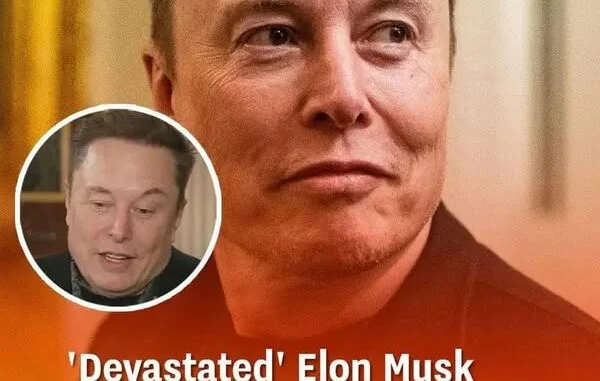
Elon Musk is no stranger to financial turbulence, but this latest hit stands out—both in scale and in sting. In a single dramatic day, Musk saw a jaw-dropping $29 billion evaporate from his net worth. To put it in perspective, that’s more than the entire GDP of some small nations—gone in just 24 hours.
The trigger? A steep 15% plunge in Tesla’s stock price that rattled investors and sent shockwaves across global markets. Panic spread, analysts scrambled for explanations, and social media lit up with memes mocking the billionaire’s sudden loss. Though Musk isn’t exactly tightening his belt, the sheer magnitude of the drop reminds the world just how fragile even the loftiest fortunes can be.
The collapse wasn’t random. Tesla’s stock was already under pressure from growing concerns about the global economy, tech market volatility, and rising competition in the electric vehicle space. Investors, wary of a potential economic slowdown, began pulling back from high-growth, high-risk assets—and Tesla, once a darling of Wall Street, bore the brunt of that fear.
The company’s performance in China dealt another critical blow. Once one of Tesla’s most promising markets, China has become increasingly crowded with local electric vehicle giants like BYD. In February, sales from Tesla’s Shanghai plant dropped by nearly 50%, the steepest decline in over a year. The sharp downturn sparked concern about Tesla’s long-term competitiveness in the region and triggered even more sell-offs.
Adding fuel to the fire was Musk’s involvement in political controversy. His public alliance with former President Donald Trump and his recent appointment to the newly formed Department of Government Efficiency (DOGE) stirred backlash. Musk claimed his role was focused on reducing waste and streamlining government operations, but critics accused him of using his influence for political posturing. The controversy sparked protests outside Tesla dealerships and calls for boycotts, further unsettling investors already on edge.
For a man known for his resilience, Musk showed rare signs of frustration. In an interview with Fox Business, he admitted managing his many ventures was “a great challenge.” He defended his role in DOGE, insisting his intentions were focused on positive reform rather than politics. But his tone was more strained than usual, offering a glimpse into the pressure mounting behind the scenes.
Even after the hit, Musk remains the world’s richest person, with an adjusted net worth of $301 billion. Yet this sudden drop underscores the volatility that comes with building a fortune so tightly tied to one company’s stock performance. Tesla made him a titan—but it also makes him vulnerable. Every bump in the market has the power to shake billions from his wealth in an instant.
More than just a personal loss, Musk’s $29 billion drop serves as a reflection of the tech industry’s inherent instability. The electric vehicle market, once dominated by Tesla, is becoming more crowded and competitive by the day. As newer players emerge and global markets shift, Tesla’s future is no longer guaranteed. For Musk, the pressure is higher than ever to maintain dominance, navigate political scrutiny, and prove that Tesla can weather the storm.
In the fast-moving world of tech and finance, even the richest man on Earth can lose tens of billions in a heartbeat—and the world watches every moment of it unfold.
